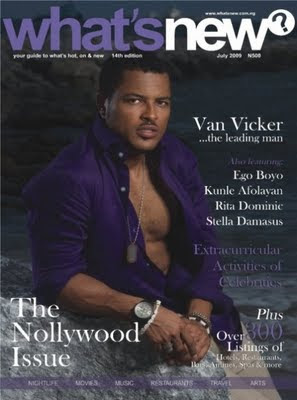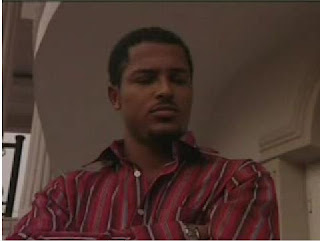Decision day at the world bank: is Ngozi Okonjo Iweala the next world bank President!?
The Washington Post reports
(Antoine Antoniol/BLOOMBERG)The first time Ngozi Okonjo-Iweala ever had to convince Barack Obama of anything was back in 2005.At the time, Obama was an ambitious young senator from Illinois with a keen interest in foreign affairs. Okonjo-Iweala was Nigeria’s blunt-speaking finance minister, traversing the globe to convince the world’s wealthiest nations that they should ease her country’s debt burden.“Everybody was saying that this could never be done . . . that it would never happen,” Okonjo-Iweala recounted at an April event in Washington. “We went up to the Hill and there was a certain senator, Barack Obama” — long deadpan pause — “who was among those who were skeptical.”
Eventually, Obama — and the rest of the world — would agree with her. Nigeria paid $12 billion up front to win a further $18 billion in debt relief, and while questions still linger about how good a deal Nigeria got, it removed a major obstacle to the country’s economic growth. She cites the episode as an example of her “persuasive power.
Seven years later, that young senator is president, and Okonjo-Iweala, now 57, is using her powers on an even more far-fetched idea. She’s making a bid to lead the World Bank, which last year loaned $57 billion to help poor countries develop. But by tradition, the presidency has always gone to the U.S. nominee, and Obama has made his pick: Dartmouth College president Jim Yong Kim. As the bank’s board of directors prepares to make a final decision next week, it’s clear that selecting a woman from Africa would be unprecedented.
Yet Okonjo-Iweala hasn’t relented. She insists that she is, by far, the most qualified candidate, having worked at the World Bank for decades, including a stint as its second in command. She has adoring fans — there’s a #TeamNgozi Twitter hashtag — and has garnered support from opinion leaders such as the editors of the Economist and PIMCO head Mohamed El-Erian. The New York Times editorial board, which has called for a more open selection process, urged the World Bank’s board to “take a serious look” at Okonjo-Iweala.
What’s perhaps most surprising about Okonjo-Iweala’s insurgent campaign, however, is that she isn’t proposing an overhaul in how the Bank does business — apart from the way in which the president is selected. One senior bank official calls her “the consummate insider.” Unlike Kim, who has a long history of public health activism, Okonjo-Iweala seems more content to propose modest tweaks to the institution.
In many ways, then, the most radical thing about Okonjo-Iweala’s candidacy is the fact of the candidacy itself.
Living poverty
The details of Okonjo-Iweala’s biography go a long way toward explaining why she generates such enthusiasm. She was born in 1954, when Nigeria was still under British colonial control, and reportedly learned English by reading books such as “Treasure Island.”
After the British left in 1960, her life grew tumultuous. In 1967, the southeastern provinces of Nigeria, including Okonjo-Iweala’s home Delta State, declared independence as the Republic of Biafra. A bloody, three-year civil war ensued, leaving 1 million dead. Her father, a distinguished economist, joined the Biafran army and her family subsisted through the war, she said, on one meal a day. In a 2005 interviewwith the Guardian, Okonjo-Iweala recounted how, when she was 15, she carried her malaria-stricken 3-year-old sister four miles to find a doctor.
“I know what it means to go to the stream to fetch water . . . what it means when people are poor and don’t have enough to eat. It’s not enough to say you know about poverty,” Okonjo-Iweala said recently, explaining why she should lead the World Bank. “You have to live it.”
When she was 18, Okonjo-Iweala moved to the United States to study economics at Harvard and MIT. She went on to join the World Bank in 1982, climbing through the ranks by shifting between jobs and across regions: as an agricultural economist focusing on Africa; country director for Mongolia, Malaysia, and Cambodia; and deputy vice president for the Middle Eastern region.
Most World Bank affiliates who have spoken out publicly on Okonjo-Iweala’s behalf — including 39 former staffers who wrote an open letter praising her “deep experience in international and national issues of economic management” — know her from this period. Among other things, she co-authored an influentialreport on how the bank should operate in fragile states that have been racked by conflict (known as “low-income states under stress”), where the bank’s government partners were either dysfunctional or nonexistent.
Economists say that Okonjo-Iweala comes at development from a fairly mainstream perspective. “Many international organizations, like the United Nations, take a very state-centric view of development,” said William Easterly, a development economist at New York University and former bank staffer. “But the World Bank tends to see a more balanced role for markets and states, and I’d associate Okonjo-Iweala with this view.”
Okonjo-Iweala’s best chance to put her views into practice outside the bank came in 2003, when Olusegun Obasanjo, then president of Nigeria, asked her to work as his finance minister. (Obasanjo had been impressed with a brief she wrote about economic reform.) At the time, Nigeria had just emerged from a three-decade military dictatorship that had racked up $35 billion in debt and transformed the country into what the anti-corruption group Transparency International deemed one of the most corrupt places on Earth. Okonjo-Iweala’s task, in addition to crafting the country’s budgetary priorities, was to clean up the wreckage.



Comments